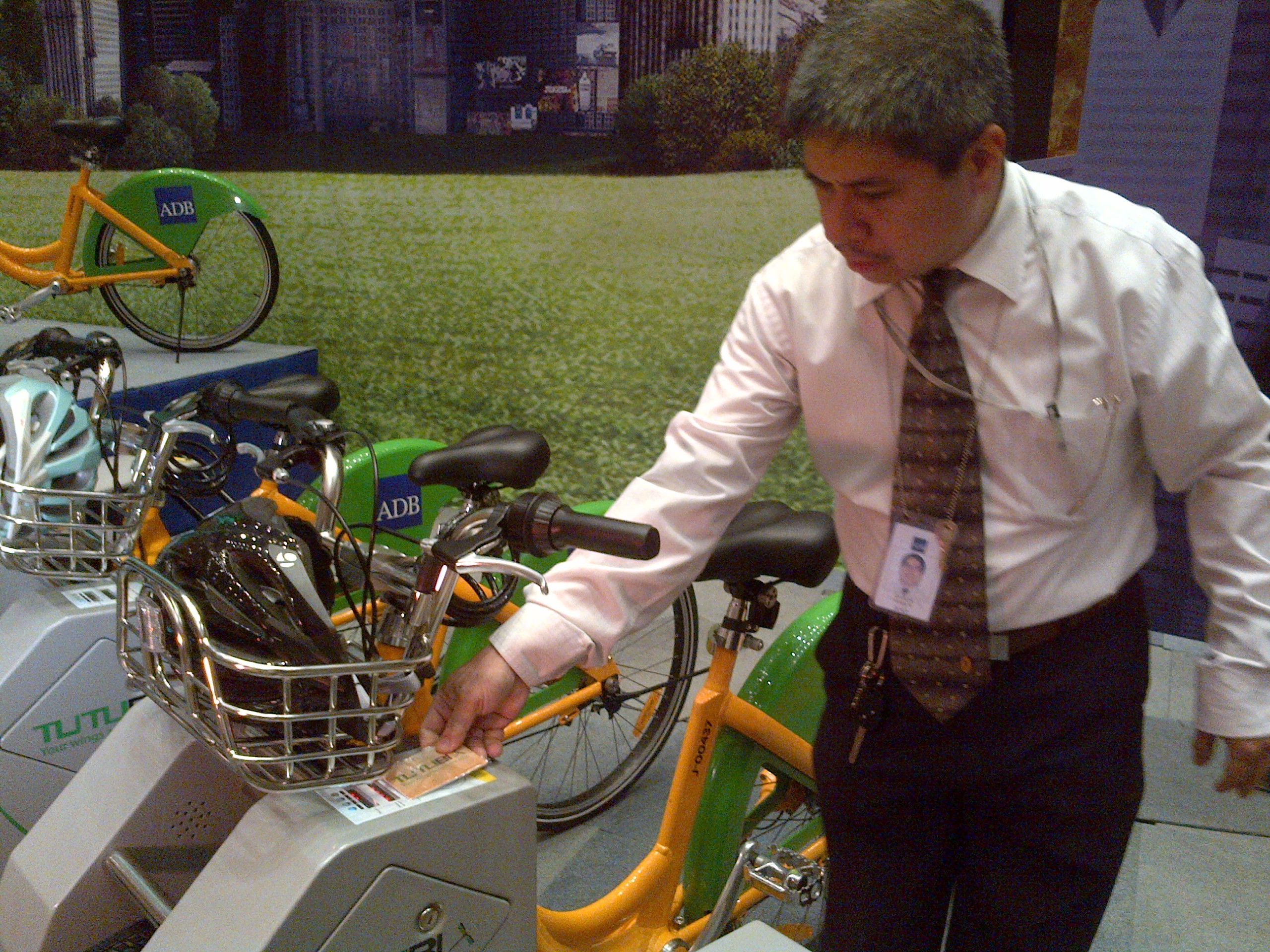SUMMARY
This is AI generated summarization, which may have errors. For context, always refer to the full article.

MANILA, Philippines – These days, if you don’t have a car, you can take a jeepney, the rail transit, or take a long and unpleasant bus ride to work.
Soon, the list of transportation means will get longer with the addition of shared bikes.
The Asian Development Bank (ADB) and the government of Japan through the Japan International Cooperation Agency (JICA) on Tuesday, November 6, launched a bicycle-sharing scheme which will be tested in 3 cities for possible replication across developing Asia and the Pacific.
The US$2 million project is funded on a grant basis by the Japan Fund for Poverty Reduction and administered by ADB.
“This initiative will show that urban transport conditions can be improved through the low-cost and zero-emission solution of bicycle-sharing systems,” Senior Transportation Specialist in ADB’s Regional and Sustainable Development Department Lloyd Wright said.
The cities of Pasig in the Philippines and Vientiane in Lao People’s Democratic Republic have been selected as demonstration sites. A third city is eyed in Indonesia.
In Pasig City, there will be two shared bike stations, dubbed Tutubi stations, inside the Ortigas Center, where the ADB headquarters is located. These stations will have 20 bikes that can be rented through smart cards.
These smart cards will contain all the information on the bike user/borrower and will allow users to ride a bike for free for 30 minutes and be charged for succeeding minutes of use. All bikers need only to swipe the smart card onto the bike lock and the bike will be unlocked and be ready for use.
However, the ADB said the costs for renting these bikes are still being determined.
ADB said the project will improve air quality and reduce the rate of pedestrian accidents and fatalities linked with too many private vehicles on the road.
In 1980s, only 9% of the world’s 360 million motorized vehicles were found in the Asia and Pacific region. By 2030, it is estimated that nearly half of the world’s projected 1.5 billion vehicles will be in the region.
Aside from contributing to cleaner air, ADB said bicycle-sharing is recognized as a means of traveling on short trips that are too long to walk, and a way to close the gaps between public transport and a rider’s final destination – otherwise known as the “last-mile” issue.
Globally, bicycle-sharing schemes became popular after Paris inaugurated its system in 2007. Since then, more than 300 systems have opened across the Americas, Asia and Europe. – Rappler.com
Add a comment
How does this make you feel?
There are no comments yet. Add your comment to start the conversation.